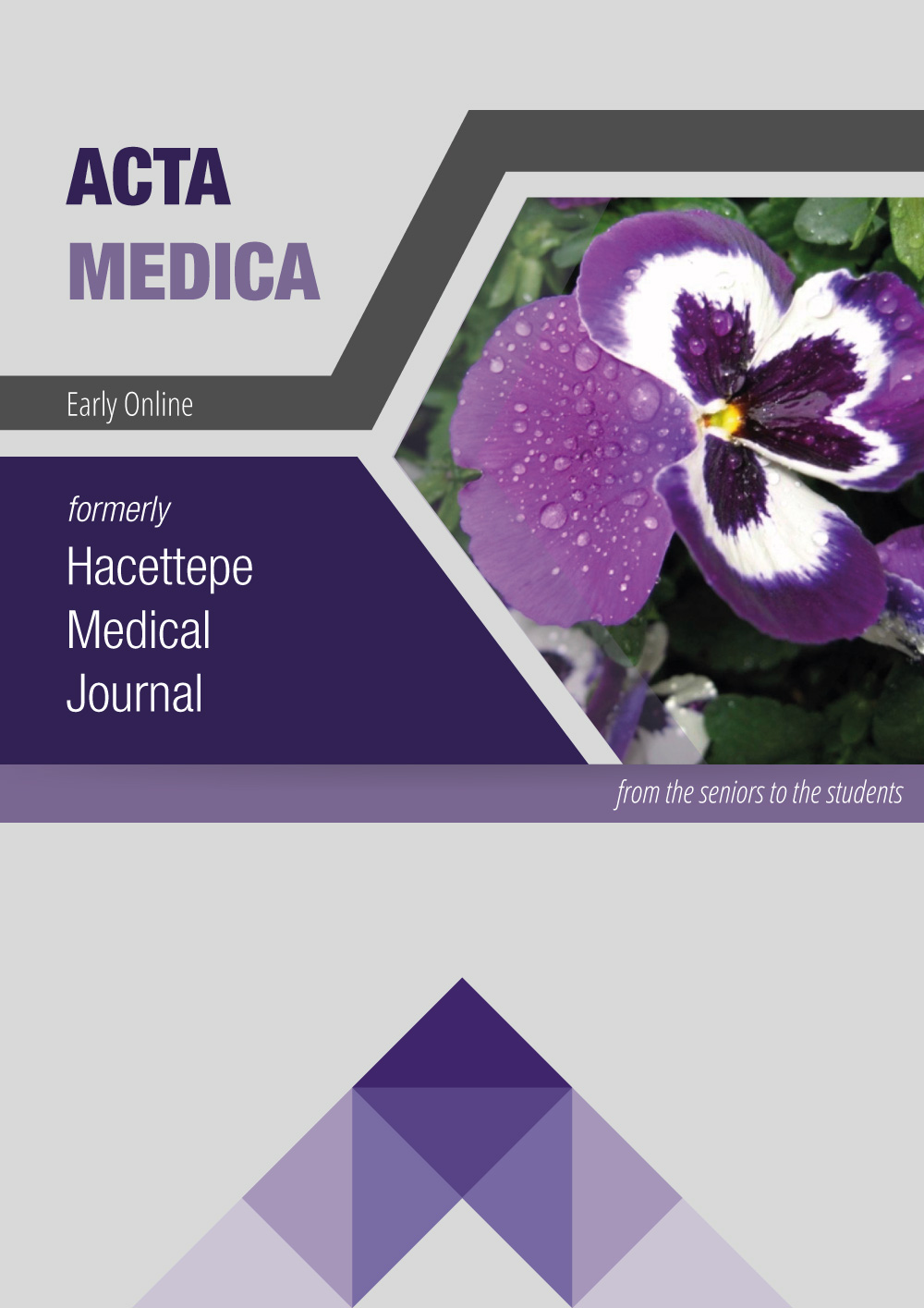
Acta Medica
Yazarlar: Murat Çap, Bernas Altıntaş, Önder Bilge, Ferhat Işık, Ümit İnci, Rojhat Altındağ, Abdurrahman Akyüz, Muhammed Süleymanoğlu, Burhan Aslan, İlyas Kaya, Mehmet Şahin Adıyaman, Derya Deniz Altıntaş, Neşe Kanbal, Erkan Baysal
Konular:-
Anahtar Kelimeler: COVID-19,QTc Interval,Hypokalemia,Hypocalcemia
Özet: Objective: Studies have shown that electrolyte abnormalities can be seen in Coronavirus disease 2019 (COVID-19) patients and are associated with the severity of the disease. We aimed to investigate the electrolyte imbalance such as hypocalcemia and hypokalemia in patients hospitalized with COVID-19 and its effect on the QTc interval. Materials and Methods: 185 hospitalized patients with COVID-19 whose diagnosis was confirmed by a real-time reverse transcriptase-polymerase chain reaction and/or Computed Tomography of the chest were included in the study. The potassium and calcium measurements on the admission and third day of hospitalization were recorded. The QTc interval measurement was performed on the admission (QTc-B) and the 3rd-day (QTc-AT) electrocardiography. Results: The median age was 43 (31-56 IQR) and 102 (55.1%) of patients were male. Median baseline potassium level was 4.0 mEq/L (3.7-4.3 IQR) and corrected calcium level was 8.48 mg/dl (8.24-8.73 IQR), whereas the 3rd-day median potassium level was 4.2 mEq/L (3.9-4.5 IQR) and corrected calcium level was 8.42 mg/dl (8.16-8.70 IQR).The median QTc-B interval was found as 427 ms (409-447 IQR) whereas the median QTc-AT interval was found as 438 ms (414-459 IQR). Median 9 ms (-5- 28 IQR) prolongation was observed in the QTc interval, which was statistically significant (p <0.001). There was a significant relationship between QTc-AT and baseline potassium level, potassium level on the 3rd day (respectively β coefficient= -2.083, 95% CI -27.134- -0.577, p value= 0.041, β coefficient= -2.547, 95% CI -27.925 - -3.385, p value= 0,013 ) but there was no significant relationship with baseline and 3rd day calcium level. (respectively β coefficient= -0.848, 95% CI -22.102- 8.919, p value= 0.399, β coefficient= 0.707, 95% CI -8.685 – 20.784, p value= 0.415). Conclusion: Electrolyte disorders such as hypocalcemia and hypokalemia can be seen in patients hospitalized with COVID-19. After treatment, a significant prolongation was observed in the QTc interval and a significant relationship was observed between QTc-AT and potassium levels, but no significant relationship with calcium was observed.